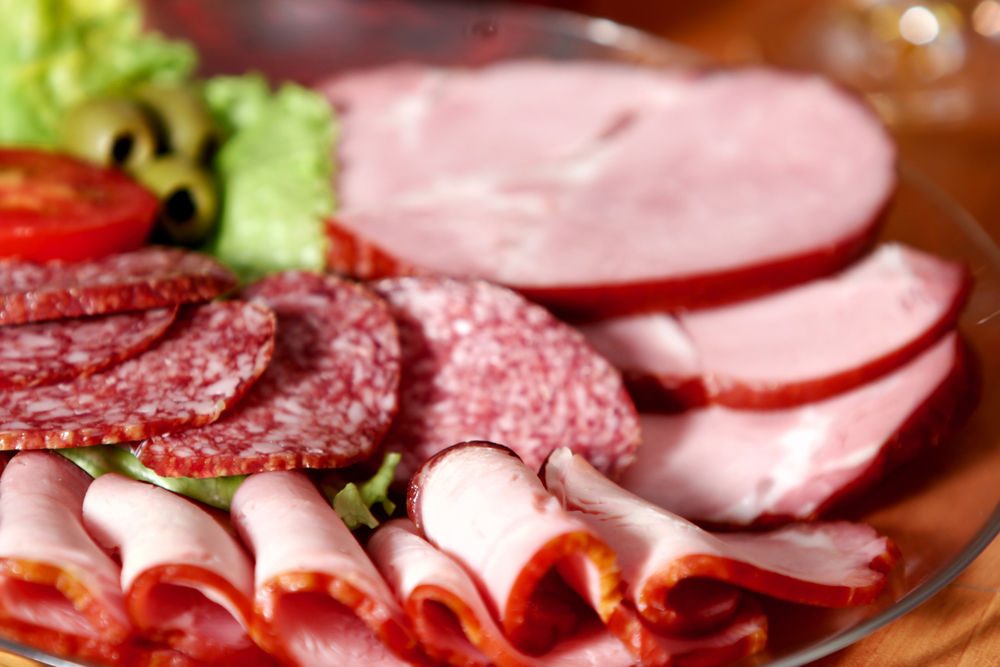

There has been a lot of talk lately about the risks of processed meat and red meat. Traditionally, processed meats and lean, red meats have been labeled safe in moderation as part of a healthy diet. Understanding the risks can be a challenge, when the American diet has been so heavy in consumption of red and processed meat for so long.
Red meat refers to animal muscle meat such as beef, veal, port or lamb while the term processed meat refers to meat that has been altered by salting, curing, fermentation, smoking, or other processes including preservation methods. Processed meats may also contain animal byproducts, which include things like blood and the offal, or liver and other organs. The term processed meats refers to sausages, hot dogs, ham, corned beef, beef jerky, and canned meats among others.
Both red and processed meats contain carcinogens (cancer causing compounds) and high levels of consumption have been linked to higher rates of colorectal, stomach, breast, pancreatic and prostate cancers. Processed meats especially may also contain high sodium levels which are also associated with high blood pressure and have been shown to correspond with cardiovascular disease. According to the World Health Organization’s (WHO) recent announcement, as little as 50 grams (2-3 slices of bacon) of processed meat eaten daily increases the risk of colorectal cancer by 18%.
Other Protein Options
So, if we are going to cut out lean red meat, how do we replace that source of protein? With a little planning, there are many vegetarian options for healthy protein sources. Vegetarian sources of protein include green peas (7.9 grams per cup), quinoa (8 grams per cup), and a variety of beans and nuts.





One sided arguments are usually what they are. My entire family loved bacon and ate it every day virtually all their lives. My dad died at 80 while shoveling snow in horribly cold weather. My mom died at 102 from Gallbladder disease. My brothers and sisters are still alive at 94, 90, 88 and 82. I would be much more worried about eating GMO’s currently as well as the toxic affects from Glyphosate build up in GMO grains as well use desiccate use for non GMO grains. One hell of a larger problem IMHO